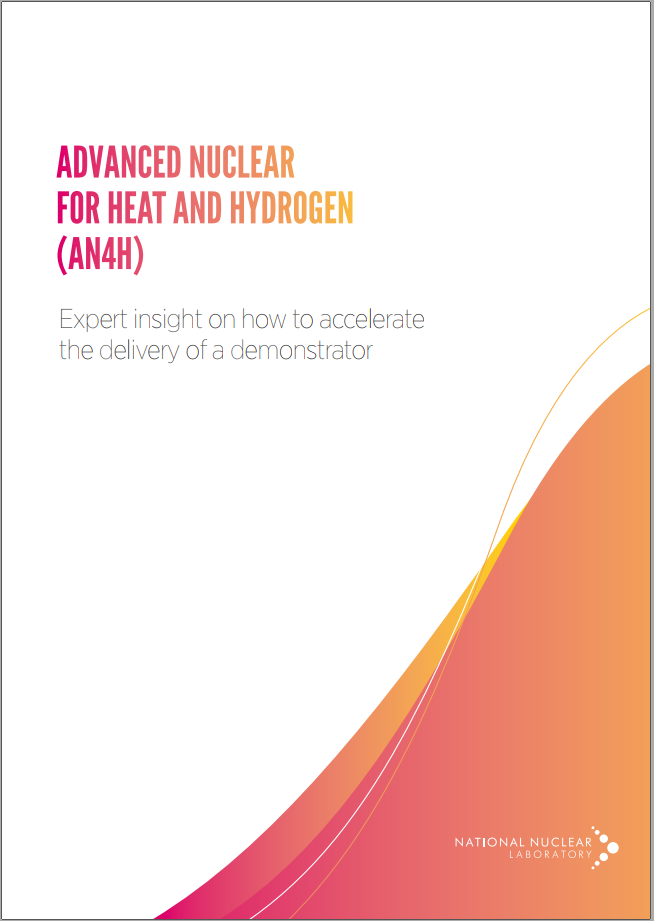Monday 5 October 2020
New NNL Report Highlights Critical Steps Towards Delivery of Advanced Nuclear Technology
NNL today publishes a major new report – Advanced Nuclear for Heat and Hydrogen – which highlights the key enablers for advanced nuclear technology to play a wider role in decarbonising society and helping the UK to reach its Net Zero commitment by 2050. The work draws on a series of interviews with acknowledged nuclear industry experts, and others from across the wider energy sector, Government agencies and the international community.
The starting point for the work is recognition of the crucial role for nuclear in the UK’s future Net Zero energy system, as evidenced in the latest modelling from the Energy Systems Catapult. This includes advanced high-temperature reactors for cogeneration of electricity and hydrogen. Given current economic and clean energy drivers, the demonstration of such technology on an accelerated timescale is vital.
NNL led the engagement of international experts to identify the enablers that significantly decrease the time needed to demonstrate this technology. The resulting report provides a ‘recipe’ for decision makers on how to accelerate delivery; key enablers to unlock the potential of advanced nuclear technology as a contributor to economic prosperity and clean energy include:
• Decisive government commitment – articulating support for advanced nuclear technology, including site allocation, and setting a vision for its role in a future net zero energy mix
• Single delivery team with an inspirational leader – establishing a UK ‘dream team’ with a singular focus on project delivery
• International partnership to adopt a near complete design – completing the final step toward commercialisation and opening export markets
Recent studies by the Energy Systems Catapult and the Nuclear Innovation and Research Advisory Board both present evidence to support the role for advanced nuclear technology in a net zero 2050 energy system. For decades, numerous research programmes around the world – including those in the UK – have explored advanced nuclear technology proving much of the technology at engineering scale. The final pre-commercial step is demonstrating commercial viability and performance at full scale. The report finds that completing demonstration before 2030 is possible and would pave the way for a fleet of new reactors to make a significant net zero contribution whilst creating high value jobs and international export opportunity.
The NNL publication considers a ‘critical path’; deploying a demonstrator in a decade would be challenging but is entirely possible by acting decisively. Early focus must be on agreeing a set of outcomes; clarity of purpose allows for simplicity in designing and delivering the demonstrator. UK industry and national laboratories have these design and delivery capabilities. The work concludes that the UK needs to ‘get going’.
Professor Andrew Sherry, Special Advisor, NNL, said:
“I hope that this report stimulates decision makers to focus on the few important things that would enable advanced nuclear technologies to grow jobs and economic impact in parts of the country that need them most whilst also helping to create a new and dynamic carbon-neutral future in the UK and around the world.”
Professor Paul Howarth, CEO, NNL added:
“This is a crucial time for the UK. We need to accelerate the development and deployment of a range of clean energy technologies to put us on a path to net zero by 2050. This NNL publication adds to the growing evidence base that nuclear can and should have a significant role in delivering our clean energy future. We conclude that with decisive action in the very near term, the UK can achieve advanced nuclear technology demonstration before 2030.”

